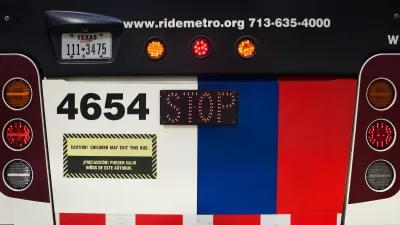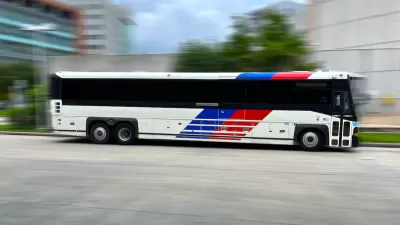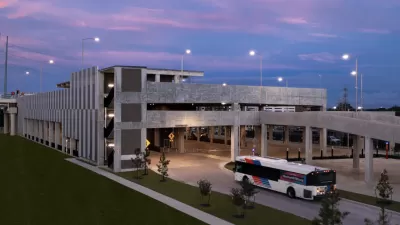The city’s Silver Line rapid transit has not been attracting as many riders as originally projected.
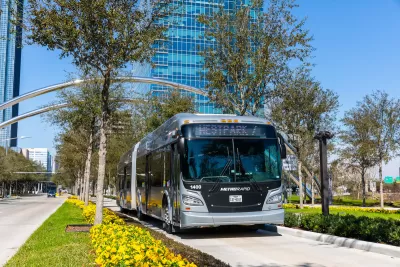
Houston Metro will reduce service on its Silver Line bus rapid transit (BRT) service, dropping headways from every 12 minutes to every 20 minutes.
As Dug Begley reports in the Houston Chronicle, “Promised as a light rail-like service for crowded Uptown, the bus line has never attracted the riders envisioned. Working from home made parking ample in the area as workers staggered visits to the office. Meanwhile, Metro's plans to tie other transit routes to the Silver Line are moving slowly. As a result, the large buses provide about 1,000 trips on a typical workday, not the 8,000 or more once projected.”
Metro says the changes won’t put federal funding at risk, even though federal rules define ‘rapid transit’ as anything that arrives every 15 minutes or less. The agency also claims the reduction in BRT service on the Silver Line does not alter plans for other rapid transit lines in the works.
FULL STORY: Changes to Silver Line service will leave Houston without bus rapid transit, Metro decides
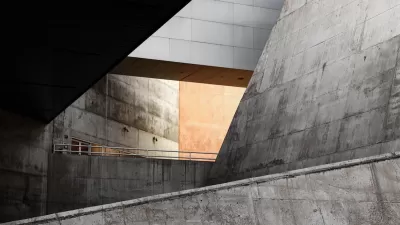
What ‘The Brutalist’ Teaches Us About Modern Cities
How architecture and urban landscapes reflect the trauma and dysfunction of the post-war experience.

‘Complete Streets’ Webpage Deleted in Federal Purge
Basic resources and information on building bike lanes and sidewalks, formerly housed on the government’s Complete Streets website, are now gone.

HUD Cuts Could Derail Mortgage Underwriting Agency
Staffing cuts at the Federal Housing Administration could imperil affordable housing projects and mortgage programs for new homeowners.

El Paso Wastewater Purification Facility Breaks Ground
As water supplies become strained and technology advances, cities look to wastewater as a viable source of drinking water.

Spirit Lake Nation Reclaims 680 Acres After Century-Long Effort
After decades of advocacy, the Spirit Lake Nation successfully reclaimed 680 acres of its original treaty land from the U.S. Fish and Wildlife Service, marking a significant step toward healing and future development.

Bourbon Street Could Be a Model for Pedestrian Spaces
The conversation around pedestrianizing public streets isn’t new — think Times Square. Could one of America’s oldest streets lead the way in a revival of the pedestrian mall?
Urban Design for Planners 1: Software Tools
This six-course series explores essential urban design concepts using open source software and equips planners with the tools they need to participate fully in the urban design process.
Planning for Universal Design
Learn the tools for implementing Universal Design in planning regulations.
North Jersey Transportation Planning Authority (NJTPA)
Economic & Planning Systems, Inc.
UCLA Lewis Center for Regional Policy Studies
Mpact (formerly Rail~Volution)
Chaddick Institute at DePaul University
City of Piedmont, CA
Great Falls Development Authority, Inc.
HUDs Office of Policy Development and Research


























